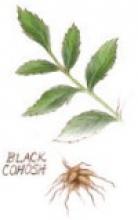Sexual intercourse induces pregnancy, not labor
A Cochrane systematic review found 1 observational study of the effect of sexual intercourse on cervical ripening and induction of labor among 28 women at term. The study evaluated cervical Bishop scores after sexual intercourse with intravaginal semen deposition for 3 consecutive nights compared with no intercourse. The difference in Bishop score was not significant (1.0 with coitus vs 0.5 controls; P>.05) and no difference in the number of women who delivered within 3 days was noted in the 2 groups (RR=0.99; 95% CI, 0.45-2.20).3
Castor oil made women nauseous
A Cochrane systematic review included 1 study of women at term with intact membranes who received 1 dose of castor oil to induce labor (n=52) compared with no treatment (n=48). All women who received castor oil felt nauseous, but no other differences were noted between the castor oil group and controls in rates of cesarean section, meconium-stained fluid, or Apgar scores less than 7 at 5 minutes.4
Herbal preparations raise many questions—and some concerns
A prospective controlled trial that randomized 192 women to receive either red raspberry leaf tablets (1.2 g twice daily beginning at 32 weeks) or placebo found no significant differences in duration of the first stage of labor or birth outcomes. Symptom surveys of 108 women revealed no adverse effects.5
A retrospective cohort study compared pregnancy outcomes in 54 women who took evening primrose oil (500 mg 3 times a day beginning at 37 weeks) with a matched group of 54 women who did not take it. The study found no significant differences between the groups in maternal age, Apgar scores, or days of gestation. However, the women taking evening primrose oil tended to have protracted active phase of labor, prolonged rupture of membranes, arrest of descent, and oxytocin augmentation (none of which were statistically significant).6
A systematic review of the literature on black cohosh in pregnancy found no trials that evaluated its efficacy for inducing labor.7 A review of herbal preparations used by midwives reported a case of an infant with low Apgar scores after black cohosh use.8 Both articles described black cohosh as potentially unsafe because of the lack of trials demonstrating safety and possible deleterious estrogenic effects.
A systematic review of the literature on blue cohosh found only in vitro studies of efficacy (increased estradiol-induced transcription in estrogen-responsive cells and increased tone in excised guinea pig uteri) and 3 case reports of maternal adverse events after ingestion (perinatal stroke, congestive heart failure with shock, and multiorgan hypoxic injury).9 In vitro evidence presented in the review suggests that blue cohosh may have teratogenic, embryotoxic, and oxytocic effects.
Recommendations
We found no recommendations from professional organizations regarding folk methods to stimulate labor. The authors of a survey of herbal preparations used by midwives do not advocate their use in pregnancy because of unknown risks to the fetus, although “raspberry leaf tea does not seem to have any significant pharmacologic activity and is probably safe.”8


